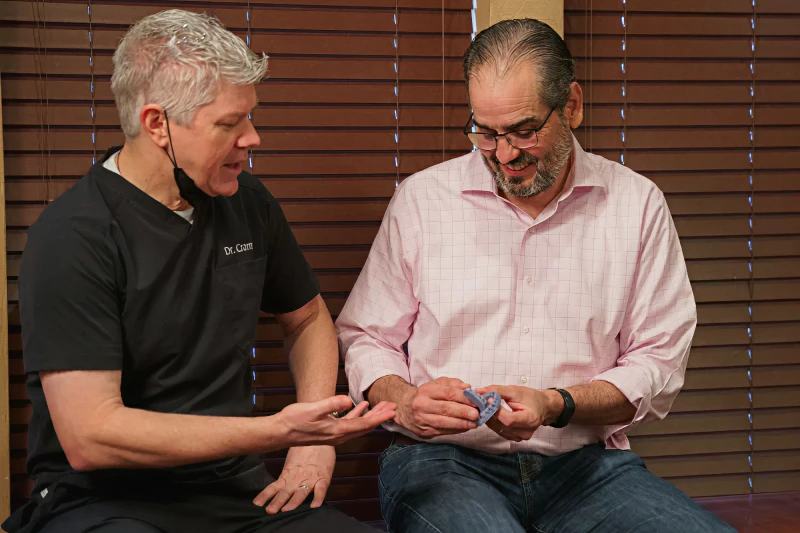Traditional Strength Refined For Modern Comfort
Reliable Results With A Sleeker Fit
A Classic Solution
Traditional metal braces remain a gold standard in orthodontics, and for Dr. Cramer, they are a tool of pure precision. He relies on this system of brackets and wires to guide teeth into their ideal positions with a level of accuracy that is hard to beat.
This option is perfect for busy parents and working professionals alike who want a “set it and forget it” solution. With Dr. Cramer managing the mechanics, there is no need to worry about lost aligners or tracking daily wear time. You simply enjoy steady, consistent progress toward a healthy bite.

Why Choose Metal Braces?
From active teenagers to adults on the go, metal braces remain a top choice for a reason. This time-tested method delivers results that are tough enough for the playground yet efficient enough for a tight schedule.
Built to Last
Metal braces are the most durable option available. They are engineered to withstand daily wear and handle even the most complex tooth movements with ease.
Freedom to Express Yourself
Braces can be a fun way to show some personality. Patients can choose from a variety of colorful bands at every adjustment to show off school spirit or favorite colors. We also offer neutral options like silver or clear bands for those who prefer a subtle, professional look.
A Stress-Free Experience
Forget the bulky brackets of the past. We use advanced, low-profile brackets that are smaller and smoother to minimize irritation. You will also find our office is designed around your comfort. From the moment you sit in the chair, you can enjoy soothing amenities to keep you relaxed while we fine-tune the smile.
Respect for Your Time
We know your schedule is busy. Our team utilizes digital planning to make adjustment appointments efficient and productive. This method offers precise control and often results in shorter overall treatment times for complex cases.
From Start to Finish
We know that starting orthodontic treatment is a commitment for any family, and we are here to make it as easy as possible. Dr. Cramer has designed a straightforward process that respects your schedule and prioritizes comfort. Here is what you can expect:
- The Start: It all begins with precision. We map out the ideal position for each bracket, creating a custom layout designed to guide the teeth gently into place.
- The Journey: Every 4 to 6 weeks, we make small adjustments to the wires to keep progress on track. It’s also a chance to get creative; patients can mix and match colors for the holidays, support a team, or stick to silver for a clean look.
The Result: We carefully remove the brackets to uncover the beautiful, straight smile you have worked so hard for. To protect that investment, we provide comfortable retainers that will keep the bite looking great.

Frequently Asked Questions
To protect the wires, steer clear of hard or sticky foods. This includes nuts, ice, popcorn, gum, and caramel. We also recommend cutting hard fruits like apples into smaller pieces.
Brush after every meal using a soft-bristled toothbrush to remove trapped food. Use a floss threader or interdental brush to clean under the wires where regular brushing cannot reach.
Duration varies based on complexity, but most cases range from 18 months to 3 years. Dr. Cramer will be able to give you a clear idea of your timeline when he sees you in person.
There may be some pressure for a few days after adjustments, but this usually subsides quickly. Modern brackets are designed to minimize discomfort.
Yes. We understand that some patients prefer an appearance that is a bit more discreet. We offer aesthetic options like ceramic braces, which blend with your natural tooth color, and Invisalign. Dr. Cramer will review your specific needs to see if you are a candidate for these systems.
A Smile Worth The Wait
The day we remove the brackets is the highlight of the journey. It is the moment you or your child finally gets to see the results of that hard work. Reaching that finish line requires patience, so we make it our job to manage the mechanics of the treatment while you focus on the outcome. From the first wire to the final retainer, we are here to ensure every adjustment counts toward that specific goal.